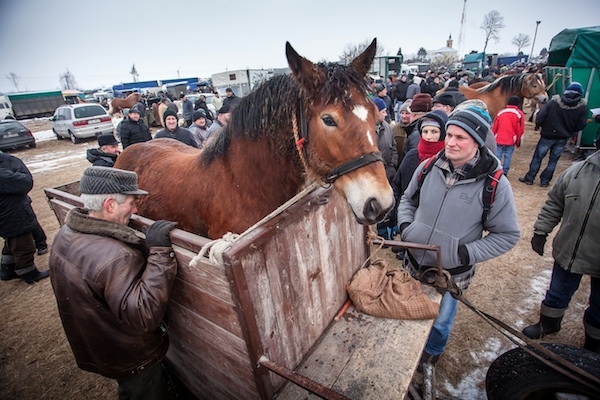When shadow Defra minister, Mary Creagh, first raised the possibility four months ago that the veterinary drug phenylbutazone – aka bute – might be found in horsemeat in supermarket products labelled as ‘beef’, both the Food Standards Agency (FSA) and the agriculture minister David Heath were quick to rubbish her statement. Heath placed his trust in the FSA and their testing procedures, safe in the knowledge that the FSA ensured that all meat was fit for human consumption, with tests for bute carried out regularly, and any positive results thoroughly invested.
But then, in February, it was discovered that British horsemeat containing the drug had been exported to Europe and had entered the food chain there. So Tuesday’s discovery that Asda corned beef – which had already been removed from the shelves due to its horsemeat content – was found to contain bute came as little surprise. It seemed almost a logical next step that contaminated products might be contaminated not just by horsemeat, but by bute-affected horsemeat.
It’s true that the risks posed from bute are relatively small (it can cause a potentially fatal bone marrow disorder in humans, and is proven to be carcinogenic in rats) – but the fact is that the drug is banned from the human food chain for a reason.
So what’s the next step? Any potentially contaminated products have been removed from the shelves – or at least we hope they have – and are still being tested for both bute and equine DNA. But how can we be sure that the same thing won’t happen again?
The FSA have already given evidence to the Efra select committee, in which they admitted that meat hadn’t regularly been tested for horse DNA since it wasn’t deemed a ‘high risk factor’. Now a review into the FSA’s handling of the horsemeat saga has been announced, and Owen Paterson has called for stricter labelling on meat products in particular, as well as an increase in the frequency of random testing of food products.
Defra have also decided to overhaul the equine passport system; a system which, as the horsemeat scandal showed, is seriously flawed. In March, Owen Paterson admitted that the current system was ‘far from perfect’, and announced that Defra would introduce ‘new quality standards for passports, making them more difficult to tamper with’. It sounds like Defra might be thinking about re-instating some form of the National Equine Database but, as yet, nothing has been confirmed.
So will any of this make a difference? We can only hope so. If the changes which are seemingly underway at the moment – the changes to equine passports, stricter meat labelling, and more random testing – are put into action, then there may be hope. But the more difficult challenge might be convincing people that cheap meat really isn’t a bargain – it’s a con.







Comments